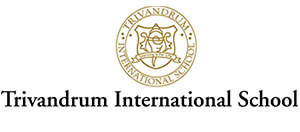The Primary Years Programme (PYP) is a comprehensive educational framework designed to nurture and develop young learners into confident, knowledgeable, and empathetic individuals. One of the core components of the PYP is the emphasis on “Approaches to Learning” (ATL), which refers to the essential skills that students need to become effective learners. These skills are not confined to specific subjects but are instead integrated throughout the entire learning process, equipping students with the tools they need to succeed in both their academic and personal lives.
Understanding Approaches to Learning (ATL)
Approaches to Learning in the PYP focus on developing a wide range of skills that are crucial for students’ overall growth. These skills include thinking skills, communication skills, social skills, self-management skills, and research skills. Each of these areas contributes to the holistic development of the child, ensuring that they are not just absorbing knowledge but are also learning how to learn. This approach helps students become more adaptable, independent, and reflective learners, capable of navigating the complexities of the modern world.
Thinking Skills
Thinking skills are at the heart of the PYP’s Approaches to Learning. These skills encourage students to engage in critical and creative thinking, enabling them to analyse information, solve problems, and make informed decisions. By fostering curiosity and encouraging inquiry, thinking skills help students develop a deeper understanding of the world around them. This process involves questioning assumptions, exploring different perspectives, and making connections between ideas, all of which are essential for lifelong learning.
Communication Skills
Effective communication is vital in today’s interconnected world, and the PYP places a strong emphasis on developing these skills from an early age. Communication skills in the PYP encompass both verbal and non-verbal communication, as well as the ability to listen actively and express ideas clearly. Students are encouraged to articulate their thoughts and ideas confidently, whether through writing, speaking, or other forms of expression. These skills not only enhance their academic performance but also prepare them for future interactions in various social and professional contexts.
Social Skills
Social skills are another key component of the Approaches to Learning in the PYP. These skills enable students to work collaboratively, respect others’ perspectives, and build positive relationships. The PYP encourages students to develop empathy, cooperation, and conflict resolution skills, which are essential for thriving in diverse environments. By learning to work effectively in teams and understand the value of different viewpoints, students become more socially aware and responsible individuals.
Self-Management Skills
Self-management skills are crucial for students to become independent and responsible learners. These skills include time management, organisation, goal-setting, and the ability to regulate emotions. The PYP helps students develop these skills by encouraging them to take ownership of their learning, set realistic goals, and reflect on their progress. As students grow in their ability to manage themselves, they become more resilient and better equipped to handle challenges both inside and outside the classroom.
Research Skills
Research skills are integral to the PYP’s inquiry-based approach to learning. These skills enable students to locate, evaluate, and use information effectively. Through research, students learn how to ask questions, gather data, and draw conclusions based on evidence. The development of research skills in the PYP is essential for fostering a culture of curiosity and critical thinking, helping students become lifelong learners who are always eager to explore and understand the world around them.
Integrating ATL in the Classroom
In the PYP, Approaches to Learning are not taught in isolation; they are woven into the fabric of everyday classroom activities. Teachers design lessons and activities that encourage the development of these skills, ensuring that students have ample opportunities to practice and refine them. Whether through group projects, individual assignments, or class discussions, ATL skills are consistently reinforced, helping students apply them in various contexts.
The Approaches to Learning in the Primary Years Programme are fundamental to shaping students into well-rounded individuals who are prepared for the challenges of the future. By focusing on thinking, communication, social, self-management, and research skills, the PYP equips students with the tools they need to succeed in an ever-changing world. These skills not only enhance academic achievement but also promote lifelong learning, ensuring that students are ready to face the complexities of life with confidence and competence.



